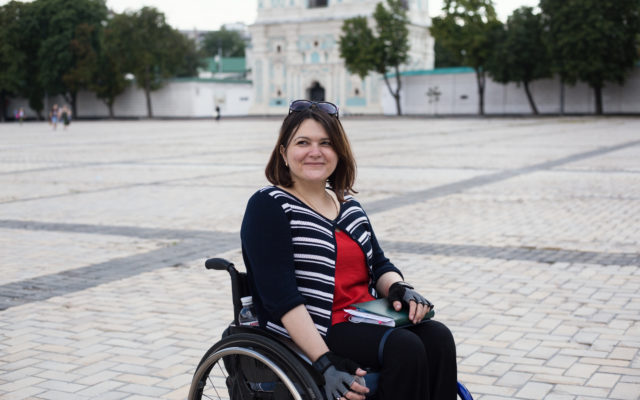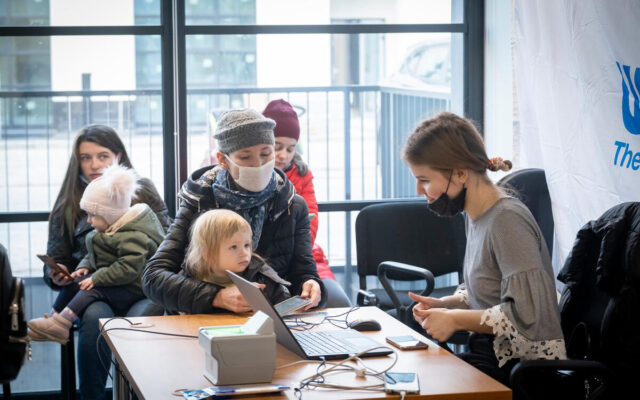Refugees build skills and confidence with classes in robotics in Hungary
The course helps refugees to take the next step in their integration to the society
31.07.23
©UNHCR/Simon Ernő
Two Ukrainian girls, Veronika and Anya, are helping each other to build a robot. “It will be on wheels and have arms like a pincer to pick things up,” says Anya, 12. “I like robots, they are funny and clever,” says Veronika, 9.
The girls, both refugees from Kharkiv in eastern Ukraine, have become friends in a Saturday robotics class run in Budapest by the Hungarian NGO Next Step Association, a partner of UNHCR that has worked for many years with refugees and other communities in the country.
Robotics helps students to think creatively and solve problems. Next Step runs several courses in various locations across the Hungarian capital, with UNHCR supporting two classes. “Next Step is fantastic,” said Nina Hager, Child Protection Officer at the UNHCR Representation for Central Europe. “It is a very open organization, close to the community, and reaches a lot of diverse groups with its creative ideas.”
The NGO was founded by a man called James Peter. Some 20 years ago, he was himself an asylum seeker in a Hungarian refugee reception centre. While there, he noticed that boredom and tension often went hand in hand, and decided to do something about it. With little computer knowledge but much passion, he persuaded some private firms to donate second hand computers, and then he set up a computer centre at the facility.“
Back then, we started with 10 computers,” he says. “The joy and excitement were immediate. There was an instant change in the atmosphere because now people had purpose and hope.”
From this modest start, Mr. Peter and partners built an NGO that helps both children and adults to take the next step in their new lives in Hungary. Next Step offers Hungarian language lessons as well as vocational training in a range of subjects from computer skills and driving to childcare. The arrival of refugees from Ukraine added to the agenda for Next Step, which now has 14 staff and 40 volunteers to cope with demand.
Since the outbreak of the full-scale invasion of Ukraine last year, millions of Ukrainian refugees have been recorded across Europe. By May 2023, 35,000 refugees from Ukraine had received Temporary Protection status in Hungary. UNHCR and its partners are working to help people become more included in their host societies until they can go home, including through classes that provide children with vital social interactions.
There are two classes for pre-teens, one taught in Ukrainian and the other in English. The latter is a group of mixed nationalities. Some Ukrainian parents have chosen this class, seeing it as a chance for their children to learn not only robotics but also English.
In the English-speaking group, children are using kits to build a robot that will run on wheels and lift loads. “What is a motor?” asks teacher Nazanin, an electrical engineer from Iran. “Yes, that’s right, it moves things,” she tells the class.
In the Ukrainian speaking group, children are using Lego kits to build simple robots. Roma, 12, from Fastiv near Kyiv, and Lyosha, 10, from Poltava oblast south of Kharkiv, have both been in Budapest for about a year. They met during an excursion to the countryside. Now they are sitting together, making a robot that, when connected to a tablet, will breakdance. “It’s good to focus on something fun” says Lyosha.
Mr. Peter is looking on proudly. He mentions that Next Step students have won prizes in city-wide robotics competitions, and they hope to compete at national level. The robots are finished and running over the floor, including Veronika and Anya’s, its pincer grabbing a toy with ease.
“We can give these kids opportunities they would not otherwise have” says Mr. Peter. “They are learning something that could make them leaders in their field tomorrow.”










